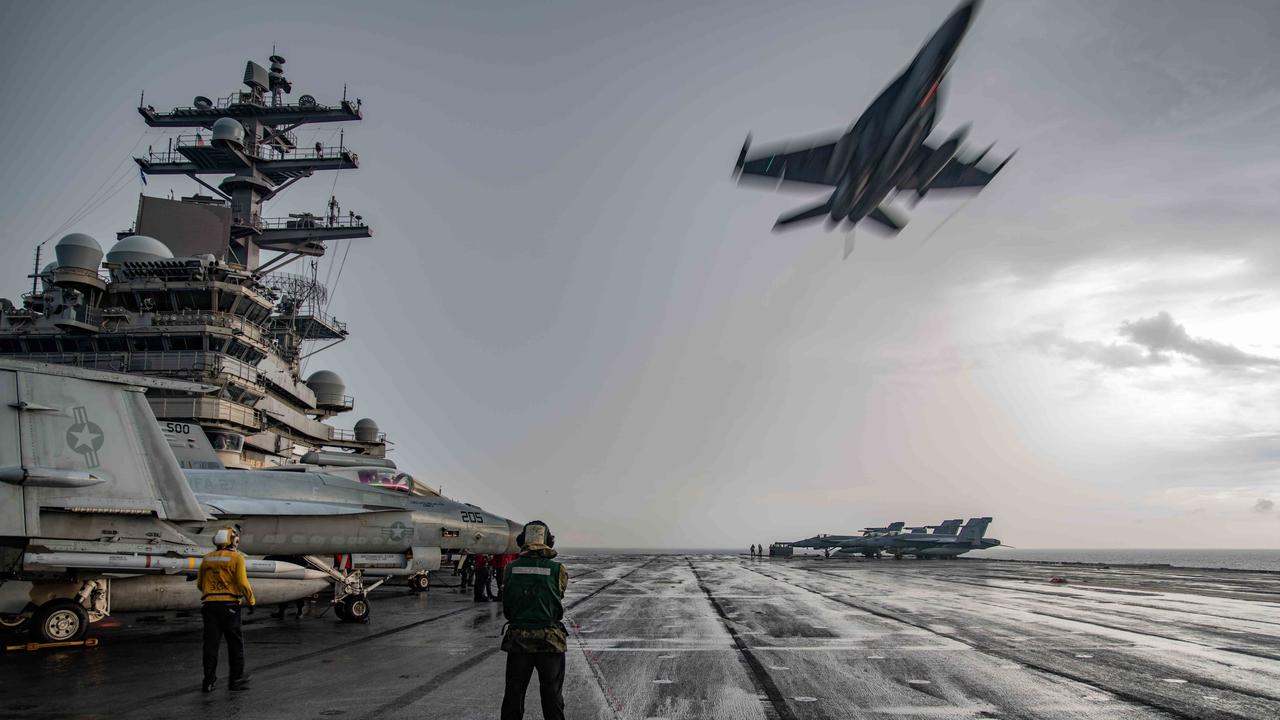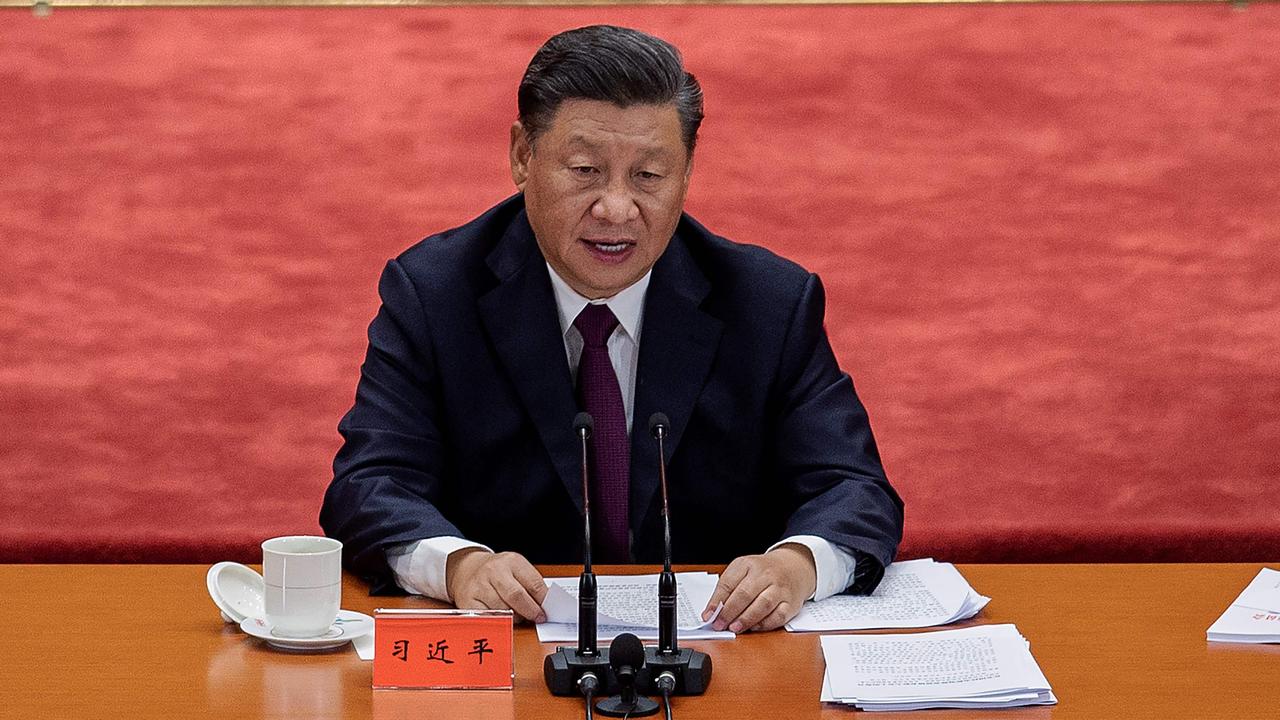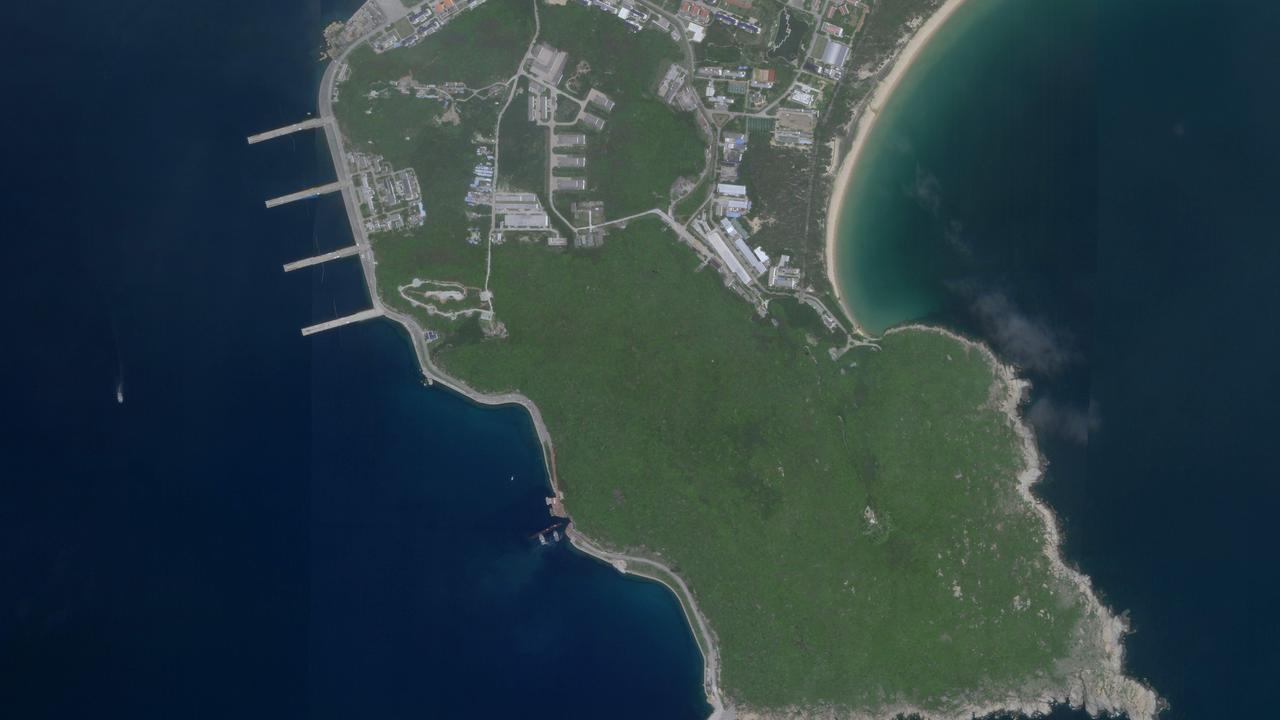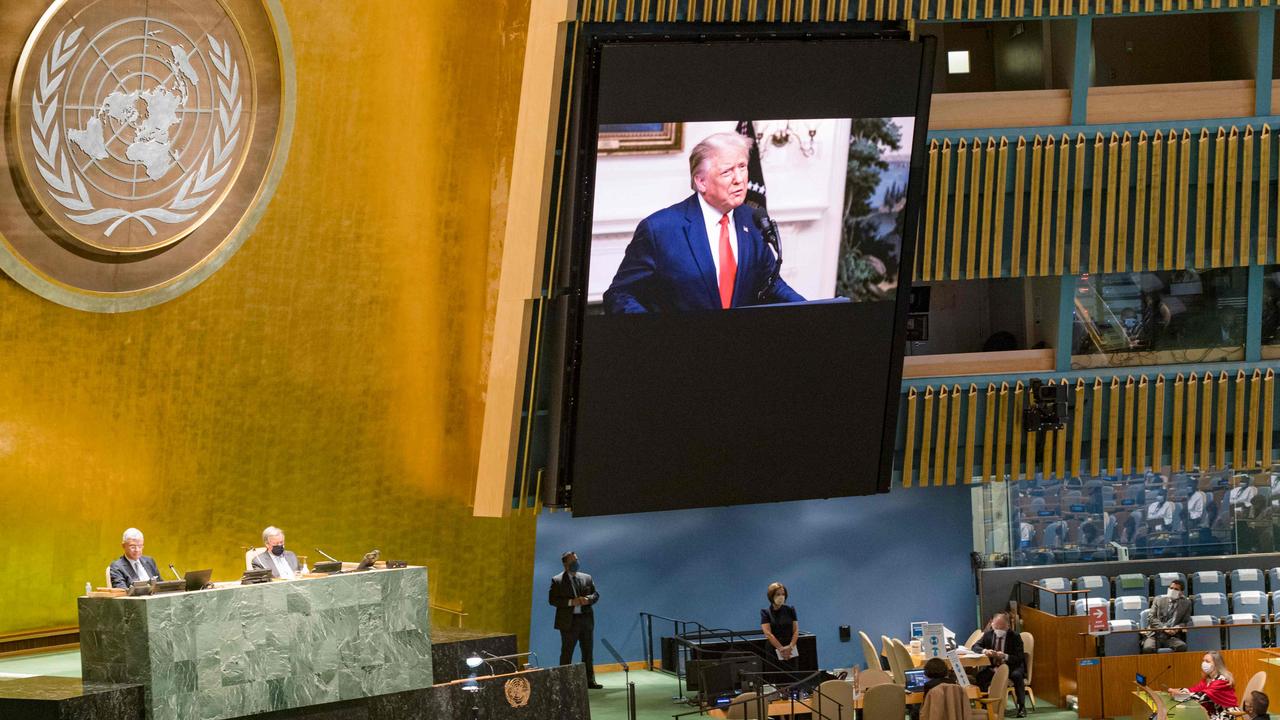South China Sea: China steps up military drills amid rising tensions
Chinese leader Xi Jinping has been accused of going back on a promise he made five years ago, as the CCP ramps up military drills in the South China Sea.

The US has accused China of going back on its word to not militarise the contested Spratly Islands, as the Communist Party ramps up military drills amid rising tensions in the region.
China has been holding fresh military exercises in the South China Sea in recent days, the Associated Press reports, following a series of recent incidents that have caused friction with its smaller Southeast Asian neighbours, including several sorties by Chinese warplanes into Taiwan’s airspace.
Earlier this month, Indonesia was forced to confront a Chinese coast guard vessel that had spent three days patrolling in Indonesian economic waters, insisting the area – some 1500km from mainland China and near the southernmost part of China’s disputed South China Sea claims – belonged to Beijing.
China’s Maritime Safety Administration issued two announcements blocking off seas around the area of exercises from Sunday to Monday, according to AP, but it was not clear the drills were in response to recent events.
It came as the US State Department issued a statement hitting out at China’s behaviour in the region.
Spokeswoman Morgan Ortagus said Chinese President Xi Jinping had gone back on a promise he made five years ago in the White House Rose Garden, where he stated that “China does not intend to pursue militarisation” of the Spratly Islands, and China’s outposts would not “target or impact any country”.
RELATED: See the latest headlines on China

“China has instead pursued a reckless and provocative militarisation of those disputed outposts, they have deployed anti-ship cruise missiles, expanded military radar and signal intelligence capabilities, constructed dozens of fighter jet hangars and have built runways capable of accommodating combat aircraft,” Ms Ortagus said.
“The Chinese Communist Party uses these militarised outposts as platforms of coercion to assert control over waters to which Beijing has no lawful maritime claim.”
She described the outposts as “staging grounds for the hundreds of maritime militia vessels and China Coast Guard ships that regularly harass civilian craft and impede legitimate law enforcement activities, offshore fishing and hydrocarbon development by neighbouring states”.
“The CCP does not honour its words or commitments,” she said.
“In recent months, we have seen an unprecedented number of states express their formal opposition at the United Nations to China’s unlawful maritime claims in the South China Sea.”
The Philippines, Malaysia and Vietnam have joined in the pushback against China’s actions in the region.
China has denied militarising the area, insisting its territorial claims are legitimate and accusing the US of provocation through recent “freedom of navigation” exercises.
Last month, Beijing upped the ante by firing “carrier killer” ballistic missiles into the South China Sea in what it described as a “warning to the United States”.

Australia has stood closely by its key Five Eyes ally as the US ramps up a global campaign against the influence of China.
In July, the two countries issued a joint statement criticising the regime’s actions in the South China Sea and elsewhere, prompting an angry response.
That came days after Australia significantly ratcheted up its rhetoric by formally joining with the US in declaring Beijing’s claim to the South China Sea as illegal in a letter to the United Nations.
It comes after the UN last week warned against a “Cold War”, as US President Donald Trump again blamed China for the coronavirus pandemic.
In a recorded address on Tuesday before he UN General Assembly, Mr Trump used the loaded term “China virus” and revived criticism of the World Health Organisation.
“We must hold accountable the nation which unleashed this plague onto the world – China,” Mr Trump said.
“The Chinese government, and the World Health Organisation – which is virtually controlled by China – falsely declared that there was no evidence of human-to-human transmission.”
Mr Xi, in a speech delivered before a painting of the Great Wall, warned the world not to “politicise” the fight against COVID-19.
“China has no intention of entering a Cold War,” he said, urging the world to avoid “falling into the trap of a clash of civilisations”.

China’s ambassador to the UN, Zhang Jun, told reporters Mr Trump’s tone was “incompatible with the general atmosphere” of the world body.
“When the international community is really fighting hard against the COVID-19, the United States is spreading a political virus here in the General Assembly,” he said.
“If we do have to hold anyone accountable, it should be the United States held accountable for losing so many lives with their irresponsible behaviour.”
UN Secretary-General Antonio Guterres, opening the General Assembly, warned that “we must do everything to avoid a new Cold War”.
“We are moving in a very dangerous direction,” he said.
“Our world cannot afford a future where the two largest economies split the globe in a great fracture – each with its own trade and financial rules and internet and artificial intelligence capacities.”
– with AFP




